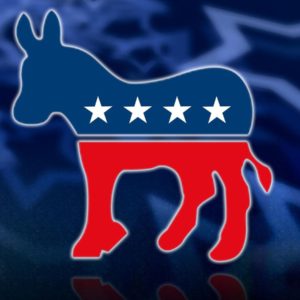(This article first appeared in Broad + Liberty.)
A relatively new nonprofit that orchestrated the distribution of grants to county election offices all across Pennsylvania in the runup to the 2020 presidential vote has recently made donations to Democratic-aligned political action committees, further undercutting the organization’s own claims it is nonpartisan.
The revelations shed more light on a nonprofit that, while launched in the Trump era, has remained active and has hosted voter registration parties in Bucks County in advance of Tuesday’s special election for House District 140. Those parties have included live bands with giveaways like free coffee and funnel cakes, and “amazing prizes like couches and coolers!”
According to its website, “The Voter Project is a non-partisan, non-profit organization dedicated to ensuring all Pennsylvania voters can cast a ballot in a safe, secure, and convenient way.” The project is organized as a 501(c)4, meaning it is a nonprofit, but it can engage in certain activities that a 501(c)3 could not.
The Voter Project’s disclosures with the IRS show a $35,000 donation to Agenda PAC in late October, 2022. It was the second largest donation Agenda PAC received in the federal reporting cycle from 2021-22, representing about fifteen percent of Agenda PACs total fundraising haul in that same period.
Agenda PAC, meanwhile, spent between $9,000 to $11,500 on Youtube ads promoting the Democratic slates of candidates in the 2023 school board races in Pennridge and Central Bucks, according to Youtube’s library of political advertisements purchased on its platform.
In at least two of those Youtube ads, the narrator chastises the Central Bucks School Board, only to end with a graphic that promotes the slate of candidates in Pennridge, offering no explanation as to why the CBSD’s actions should influence the Pennridge races.
Agenda PAC also spent $100,000 in support of Sen. John Fetterman’s campaign.
Agenda PAC has come under recent scrutiny after a Daily Caller article revealed that the PAC, chaired by hasn’t filed any campaign finance reports for 2023.
The Voter Project, meanwhile, has recently become its own 501(c)4, but started off as a project of the Keystone Research Center, a left-of-center Harrisburg think tank.
The Voter Project and its board president, Kevin Mack, were instrumental in distributing election grants to counties in the runup to the 2020 by a Chicago-based nonprofit, the Center for Tech and Civic Life (CTCL).
After Facebook founder Mark Zuckerberg and his wife Priscilla Chan gave $350 million to the CTCL in September of 2020, Republicans alleged the project was a Trojan Horse to increase turnout in heavily Democratic districts and dubbed the entire project “Zuckerbucks.”
A Broad + Liberty analysis from 2021 showed the grants distributed in Pennsylvania that year were in fact heavily skewed towards “blue” voting counties like Philadelphia, Allegheny, Delaware, and Centre.
Although the CTCL never responded to any inquiries from Broad + Liberty, it has generally countered these claims by saying that after the Zuckerberg grants were received, the CTCL transitioned the grants from invitation only to an open call. Therefore, CTCL has argued that Republican-leaning counties that received small awards nevertheless largely received 100 percent of their grant request.
While that may be true, it is also true that many of the Democratic counties in Pennsylvania that received large awards were given those grants prior to the open call — a time when “red” counties had no means at all of applying for or receiving the grants.
Before the “open call” portion of the granting process, The Voter Project and the CTCL worked exclusively with blue counties for grant awards, with the lone exception of Republican-leaning Bucks County. In that instance, then-Secretary of State Kathy Boockvar personally reached out to Bucks County commissioners to see if they would be interested in taking a grant. Boockvar has never explained why she was authorized to reach out to Bucks County to make the invitation, or why Bucks County was chosen at a time when other counties were shut out.
Months after the 2020 election, Mack, whose main job is as a partner for a political-mail consulting agency in Washington D.C., wrote on his corporate biography page that he had “served as Lead Strategist for The Voter Project in Pennsylvania which was instrumental in signing up over 3.2 million people to vote by mail and leading the soft-side effort to win the swing state in 2020,” (emphasis added).
Mack’s employment with the D.C.-based firm Deliver Strategies has also played a prominent role in how The Voter Project has spent its money. According to the most recent IRS 990 form for The Voter Project, it spent $4.3 million with Deliver Strategies.
On the same form, the nonprofit addressed any potential ethical concerns by saying, “This was an arms-length vendor relationship and The Voter Project relied on outside individuals and organizations to advise on overall spending, budgets and fees for services.”
Mack’s partner at Deliver Strategies, Fiona Conroy, is a director at a 501(c)4 political nonprofit called Project Keystone, which is a polling consortium for Democratic candidates and causes.
In addition to giving the $35,000 to Agenda PAC, The Voter Project has also given grants to two D.C.-based organizations, Pennsylvania Progress, and Pennsylvania Forward. Those two political nonprofits share the same principal officer and address. While Pennsylvania Progress’ mission statement is to “PROVIDE NONPARTISAN VOTE BY MAIL EDUCATION IN PENNSYLVANIA” the mission statement for Pennsylvania Forward is “TO ADVOCATE FOR PROGRESSIVE POLICIES IN PENNSYLVANIA[.]”
The Voter Project’s 990 does not indicate any grants to any organizations that could arguably be characterized as right of center.
Deliver Strategies no longer publishes work biographies of its employees, nor of its extensive client list, which is exclusively Democratic candidates and left-of-center organizations, such as unions.
Mack did not return a request for comment on donations made by The Voter Project.

